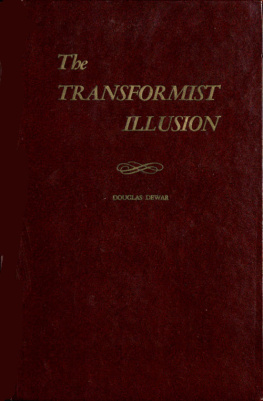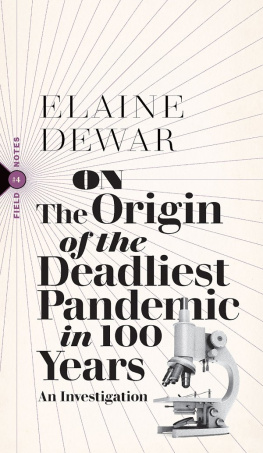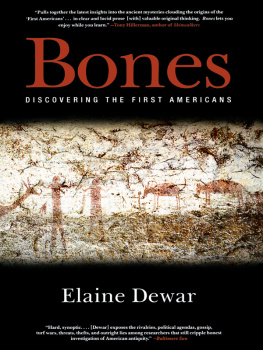Hugo Dewar - The Modern Inquisition by Hugo Dewar 1953
Here you can read online Hugo Dewar - The Modern Inquisition by Hugo Dewar 1953 full text of the book (entire story) in english for free. Download pdf and epub, get meaning, cover and reviews about this ebook. genre: Science. Description of the work, (preface) as well as reviews are available. Best literature library LitArk.com created for fans of good reading and offers a wide selection of genres:
Romance novel
Science fiction
Adventure
Detective
Science
History
Home and family
Prose
Art
Politics
Computer
Non-fiction
Religion
Business
Children
Humor
Choose a favorite category and find really read worthwhile books. Enjoy immersion in the world of imagination, feel the emotions of the characters or learn something new for yourself, make an fascinating discovery.

- Book:The Modern Inquisition by Hugo Dewar 1953
- Author:
- Genre:
- Rating:5 / 5
- Favourites:Add to favourites
- Your mark:
- 100
- 1
- 2
- 3
- 4
- 5
The Modern Inquisition by Hugo Dewar 1953: summary, description and annotation
We offer to read an annotation, description, summary or preface (depends on what the author of the book "The Modern Inquisition by Hugo Dewar 1953" wrote himself). If you haven't found the necessary information about the book — write in the comments, we will try to find it.
The Modern Inquisition by Hugo Dewar 1953 — read online for free the complete book (whole text) full work
Below is the text of the book, divided by pages. System saving the place of the last page read, allows you to conveniently read the book "The Modern Inquisition by Hugo Dewar 1953" online for free, without having to search again every time where you left off. Put a bookmark, and you can go to the page where you finished reading at any time.
Font size:
Interval:
Bookmark:
The Modern Inquisition. Hugo Dewar 1953
It began in Russia, in May 1928. This was the first great propaganda trial at which many of the accused not only confessed their guilt but also expressed their repentance and spoke ardently in favour of the regime against which they had allegedly plotted. This was the affair of the Don Basin mining specialists, known as the Shakhty Trial. It was accompanied by a nation-wide publicity campaign and ended in seven death sentences.
However, this was not only a beginning; it was also the culminating point in a process that had begun long before. When the Bolsheviks took power in Russia in October 1917 they were a tiny minority of the population. For a time, it is true, they had the support of the great masses, but it was support, not for Communism (or Socialism), but for the policy summed up by the slogan: Peace, Land, Bread. The peasants took the land themselves, but peace was short-lived, and bread especially for the industrial workers, where lay the real strength of the Bolsheviks was scarce indeed. Beset on all sides by enemies and with their popular support ever lessening as the revolutionary wave ebbed, they fought desperately to retain their hold on state power. The Marxist idea that force is the midwife of the old society pregnant with the new had no validity here for no infant Socialism waited in the womb of semi-feudal Russia. And the anticipated revolution in the industrial West did not materialise. For the Bolsheviks, therefore, it was not a question of the midwife force, temporarily employed; force had to be the permanent basis of their rule.
The basis of all government, said Saint-Simon, the true precursor of Marx, is force and fraud. The Bolsheviks, who had taken power in a land not ripe for Socialism, were wholeheartedly in favour of using force (as a means of eventually abolishing force in social relationships). Among them began a struggle between the idealists and the realists. This simplification is open to misconstruction, but it expresses the essence of the division, which must necessarily be referred to, although considerations of space prevent it being adequately discussed. It does not follow from the use of these terms that any particular individual always approached all the many practical problems exclusively from either the one or the other viewpoint; nor is it implied that the idealist viewpoint was less related than the realist to the objective situation.
Almost from the very beginning of the revolution, state trials played an important part as a means of propaganda aiming at rallying the masses round the Communist Party.
The element of fraud in these trials, while not absent, was at first relatively mild one is almost tempted, in view of what was to come later, to write harmless. In the trial that opened on 8 June 1922, the Social Revolutionaries, who were the main accused, made no confessions; still less did they sing the praises of their enemies. They defied the court, declared that they did not recognise its right to try them, and spoke out boldly in defence of their political views. The accused were thirty-two in number; divided into two groups: twenty-two prominent members of the Social Revolutionary Party, and ten others, avowed renegades from that party acting in collusion with the prosecuting authorities. These ten confessed, but their role was obvious, and it was equally obvious that the real accused were the twenty-two others who defended themselves so stoutly. They were enemies of the Communist regime, and they made no bones about it. The defending counsel, too, put up a real battle. All of which did not prevent a verdict of guilty and the passing of death sentences on twelve of the defendants. It should also be borne in mind that this trial took place in an atmosphere of civil war and followed the physical attack on Lenin by the Social Revolutionary Dora Kaplan (he was seriously wounded, but pleaded against her execution). Whatever one may think of the evidence put forward at the trial, and the manner in which it was conducted, there was nothing inherently improbable about the charges. Moreover, in response to widespread agitation in the West, the twelve death sentences were not carried out. There is a fundamental difference between this trial and the confession trials that began with the Shakhty case of 1928.
Between the 1922 and the 1928 trials was the period of transition. It is instructive to note here an incident bearing on the process of change from the propaganda state trial to the confession trial proper, and showing how this change was bound up with the inner-party struggle between Stalin and his realists and the Old Guard of revolutionary idealists. Within the Communist Party this struggle culminated in the party congress of October 1927, when the Opposition suffered a decisive defeat. This congress was preceded by police action against many less prominent members of the Opposition. The ostensible ground for this action was the alleged discovery of a military conspiracy in which members of the Opposition were said to be involved. On 13 September 1927, the GPU issued a communiqu, from which the following excerpt is taken:
On 12 September 1927, the GPU learned that one of the former officers in the Wrangel army had been approached with the proposal that he obtain a duplicator by a certain citizen, one Sherbakov, son of a former manufacturer, and a non-party man and a civil employee who turned out to be intimately connected with Sherbakov and who had information concerning the organisation of a military overturn in the USSR in the immediate future. Acting upon the said information on that very night of the 12th, the GPU raided Sherbakovs apartment; and the search revealed an illegal printing plant which was publishing the anti-party documents of the Opposition prohibited by the party... In view of the extraordinary nature of the case (the organisation of a military conspiracy)... the GPU was compelled to raid without delay the homes of a number of those party members who as the search revealed were directly concerned with the illegal Sherbakov-Tverskoi organisation.
A further communiqu of the GPU, on 17 September, stated that:
The testimony of the arrested non-party men has confirmed the existence of a group which sets as its aim the organisation of the above-mentioned military conspiracy.
At first glance all this seems straightforward enough, but closer inspection reveals the mechanics of a frame-up. Here are some of the stage props that will be met with again and again. The central figure here turns out to be a GPU man, although there is little doubt that he had really at one time been an officer with Wrangel (which gives a hint of the GPU methods of recruiting personnel). At that time the GPU intervened in party affairs with some caution; Stalin (representative of the Politbureau on the GPU) was not yet completely sure of his ground; and the Opposition was not yet completely intimidated. So the GPU was compelled to admit that this Wrangel officer was in fact one of its men. Had things gone otherwise he might well have figured at a trial as the military element in an amalgam containing also the son of a former manufacturer (the social origin angle), and non-party and party men. Note the testimony of the arrested non-party men who confirmed the existence of a military conspiracy. Note the search revealing party members as directly concerned with the activities of the two men Sherbakov and Tverskoi, although the GPU, when challenged by the Opposition, could produce none of the details or material it claimed to possess in evidence of this.
We have a conspirator, Sherbakov, asking a GPU man to get hold of a duplicator for him; and the duplicator becomes an illegal printing plant. Almost at the same moment another conspirator, Tverskoi, reveals the existence of a military plot to this same GPU man. Tverskois revelation consists, as the GPU communiqu stated, of the fact that a certain Citizeness N told him that a certain Citizen M had told her... And out of this we get the illegal Sherbakov-Tverskoi organisation.
Next pageFont size:
Interval:
Bookmark:
Similar books «The Modern Inquisition by Hugo Dewar 1953»
Look at similar books to The Modern Inquisition by Hugo Dewar 1953. We have selected literature similar in name and meaning in the hope of providing readers with more options to find new, interesting, not yet read works.
Discussion, reviews of the book The Modern Inquisition by Hugo Dewar 1953 and just readers' own opinions. Leave your comments, write what you think about the work, its meaning or the main characters. Specify what exactly you liked and what you didn't like, and why you think so.








